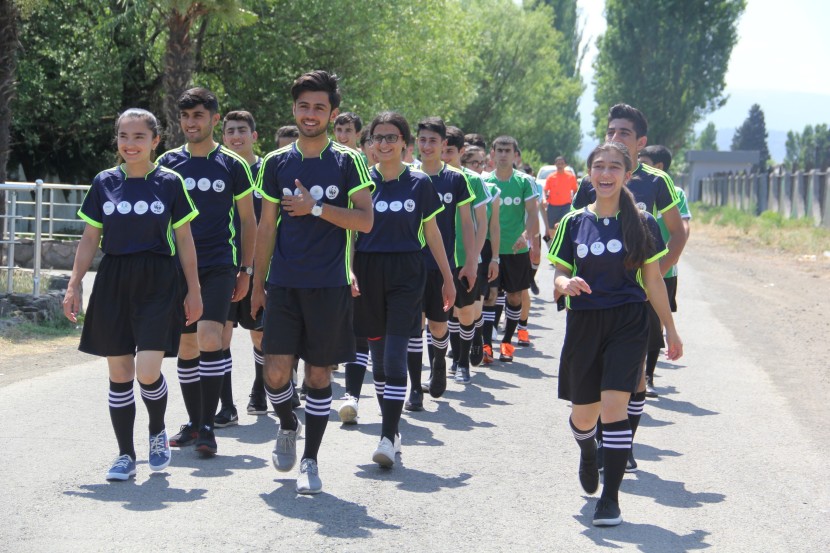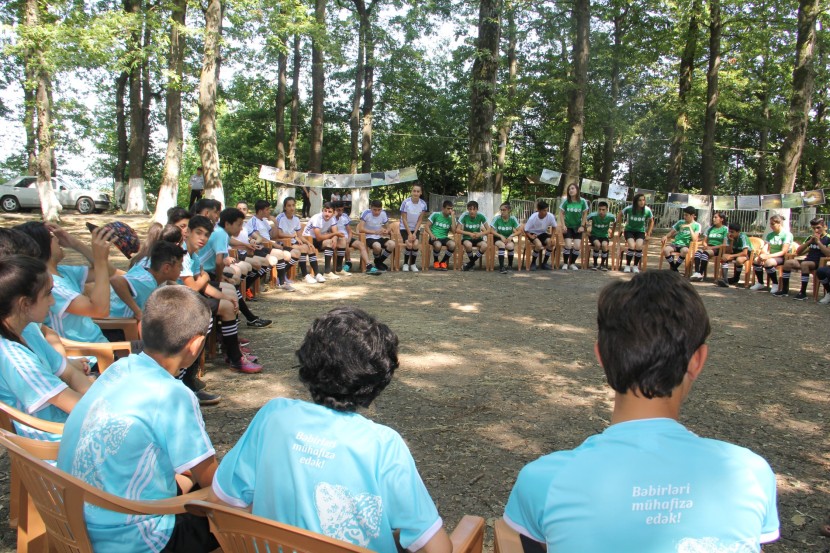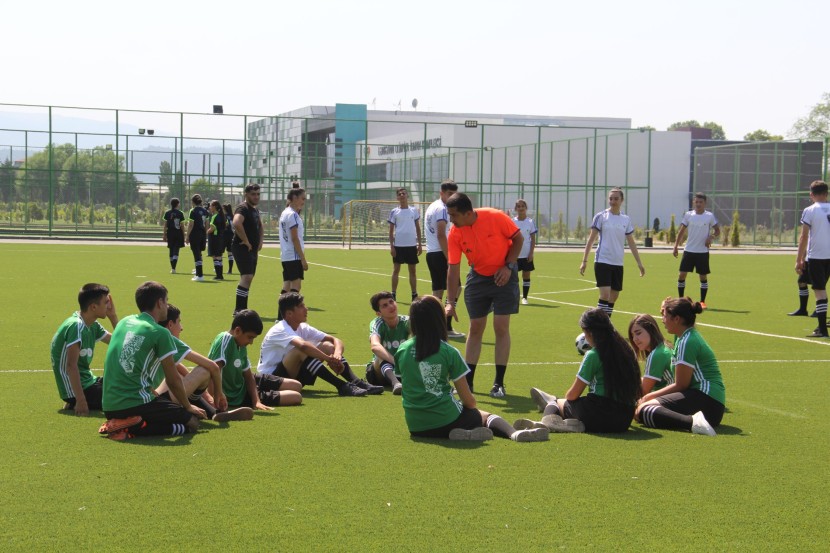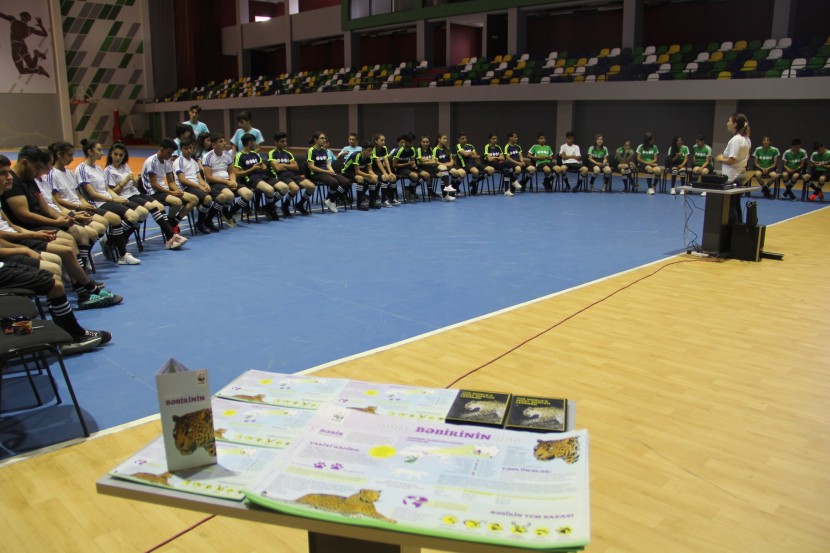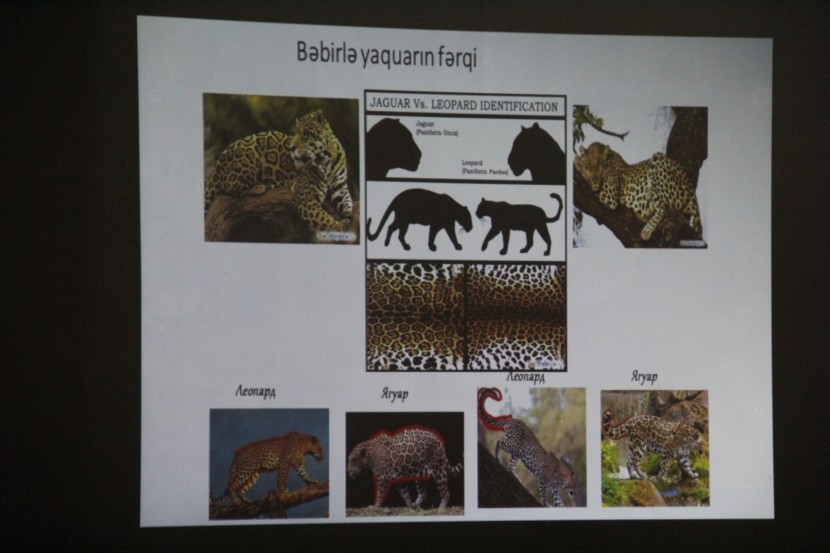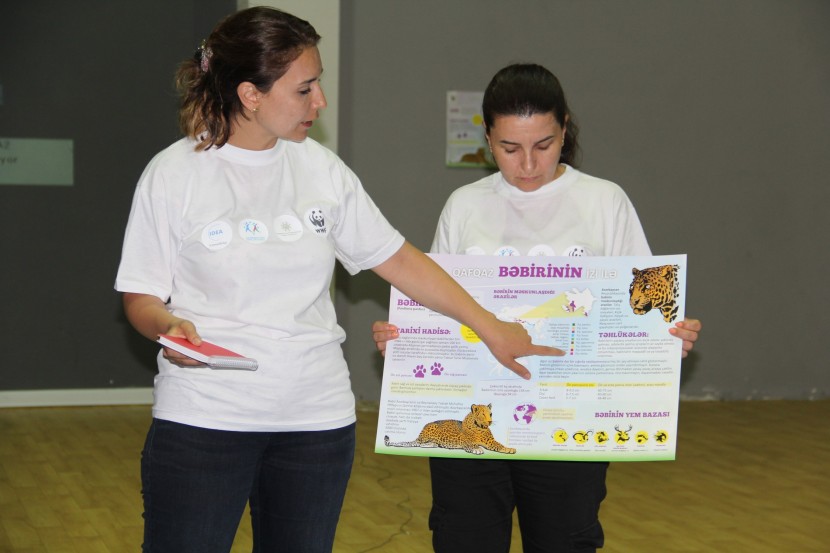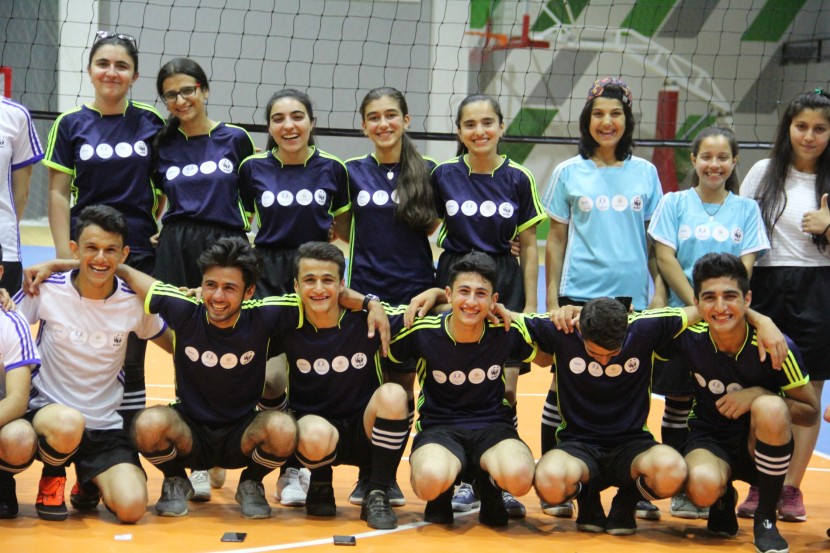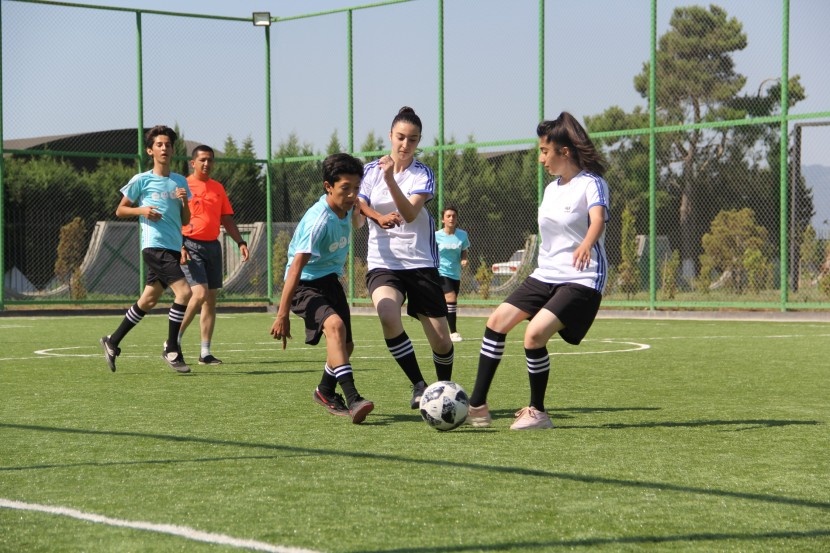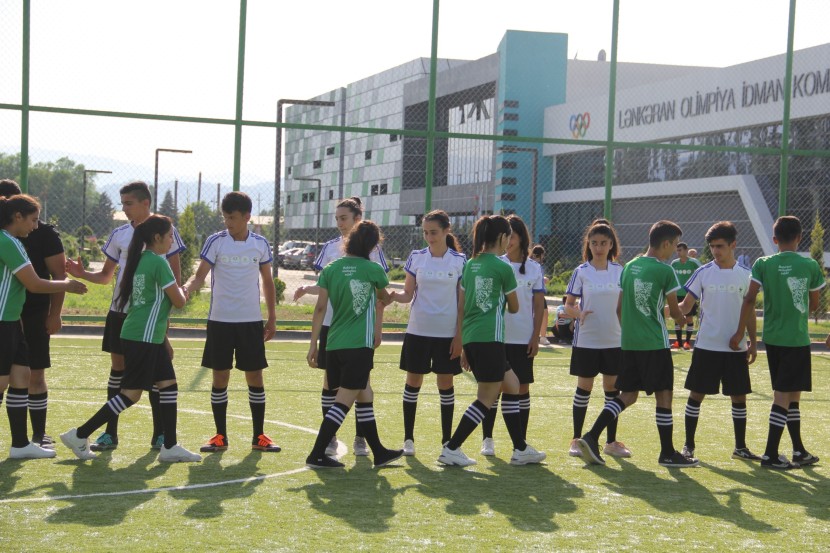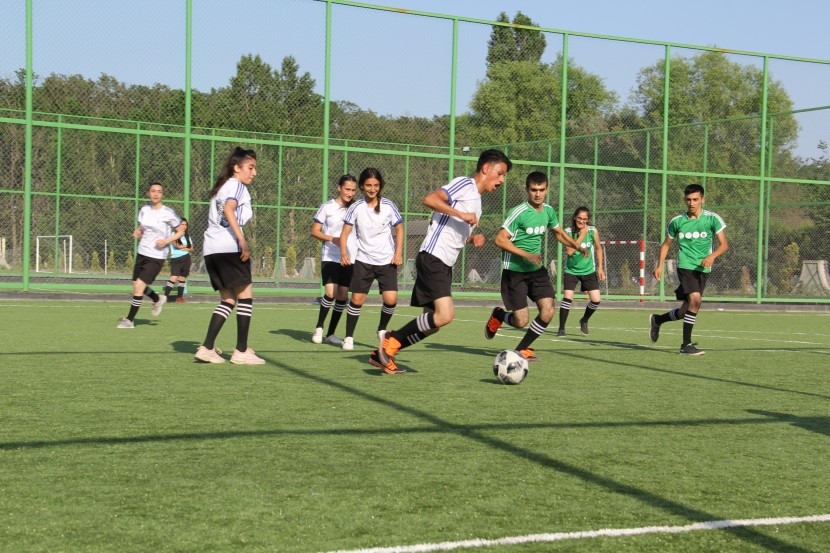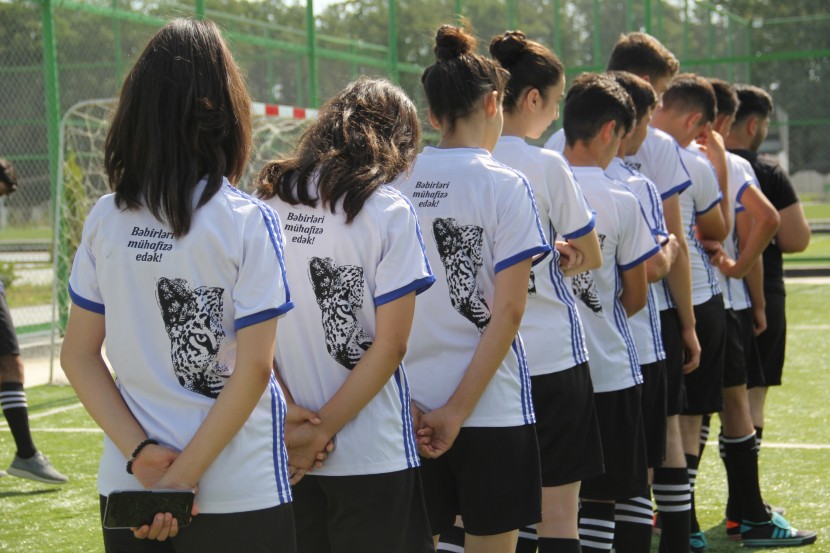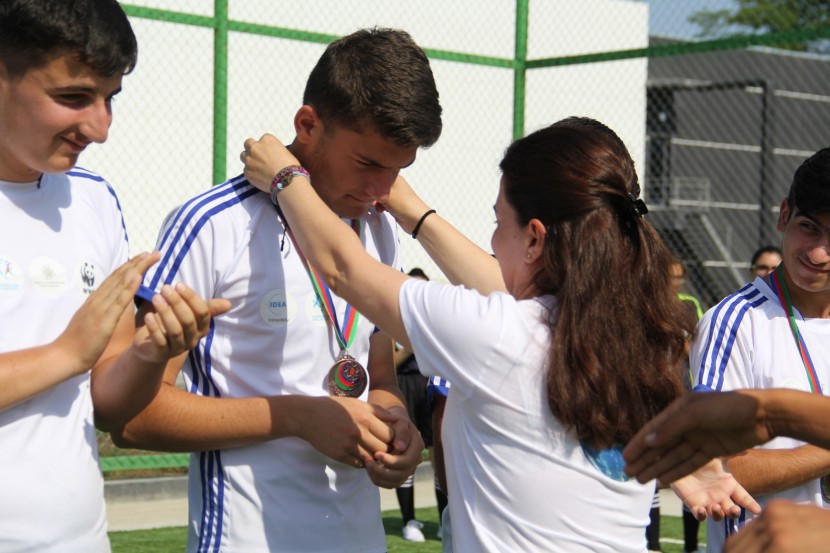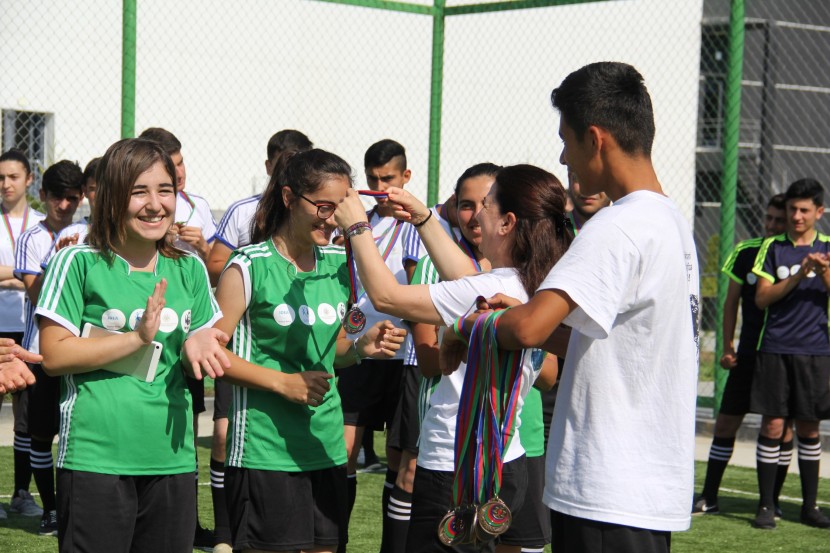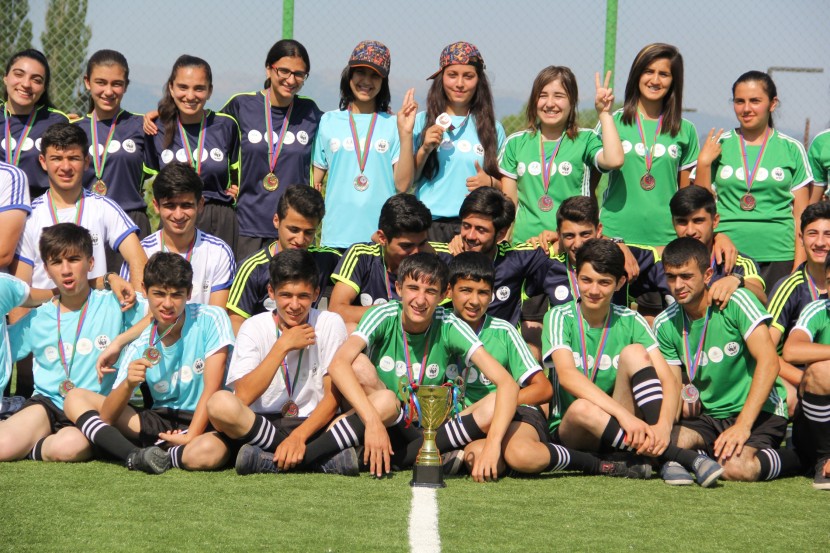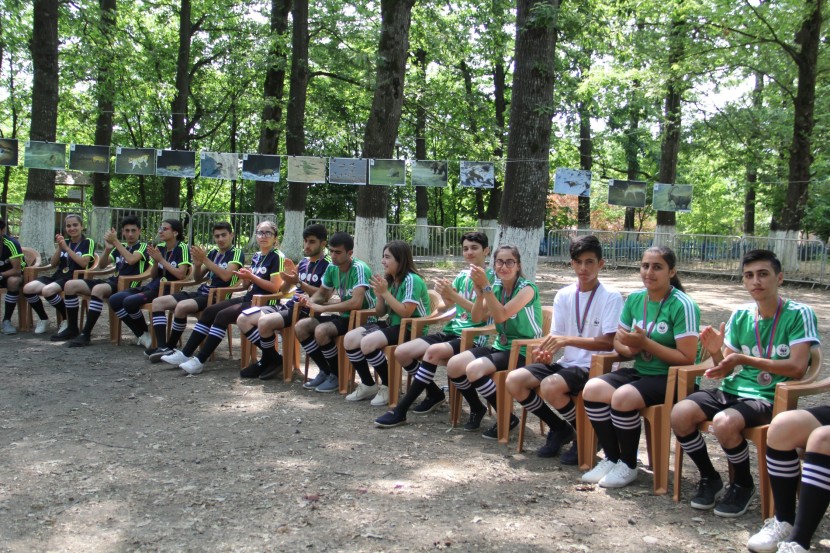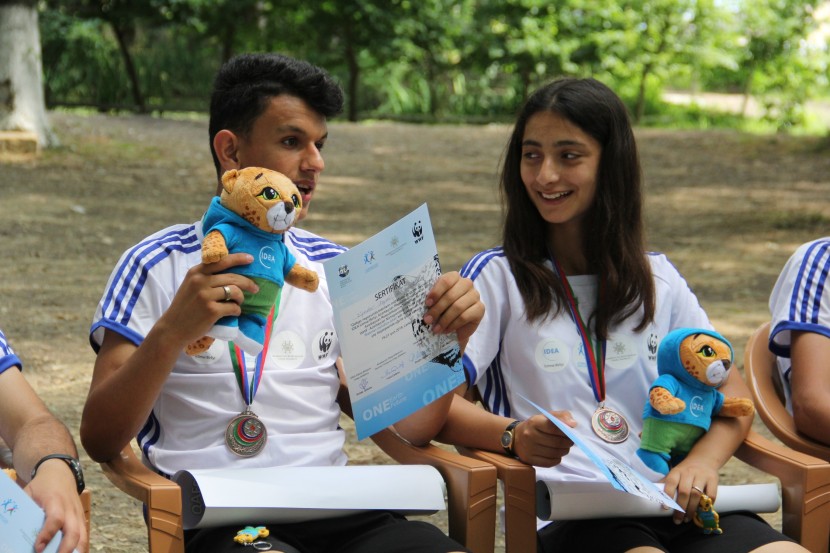In the "Let's Protect Leopards!" camp, a football championship was organized
From June 19 to 21, the traditional ecological summer camp "Let's Protect Leopards!" took place, organized by the Public Association IDEA, the Youth Foundation of the Republic of Azerbaijan, the Ministry of Education of the Republic of Azerbaijan, and the Azerbaijani representation of the World Wildlife Fund (WWF) with the support of the executive authority of the Lankaran region.
Approximately 60 students from the Lankaran, Astara, Lerik, and Masally regions participated in the camp.
On the first day of the camp, participants received extensive information about the lifestyle of leopards, their habitats, and their role in nature. They took part in seminars on the conservation of this rare species, presentations on the reasons for the decline in the leopard population, as well as in various ecological contests and quizzes related to biodiversity. The students were also shown the documentary film "The Most Wanted Leopard in the World," directed by photographer-naturalist Adrian Stern.
On the second and third days of the camp, a football championship was held among the participants. Three teams of 11th-grade students from the Lankaran, Lerik, Masally, and Astara regions participated in the games. Three matches were played between teams consisting of both girls and boys. At the end of the final game, the Lerik team won the championship.
The winning team was awarded cups and medals, while all camp participants received certificates and souvenirs.
Since 2014, at the initiative of the Public Association IDEA, camps on ecology and biodiversity have been regularly organized annually. During this period, about 500 students from the Salyan, Neftchala, Geranboy, Samukh, Gakh, Sheki, Masally, Jalilabad, Yardimli, Lankaran, Astara, Goygol, Lerik, Gabala, and Ismayilli regions have participated in the camps.
The goal of these camps is to educate youth in the field of ecology, develop their sense of environmental responsibility, inform students living near the habitats of Caucasian leopards about this rare species, and contribute to its conservation.


